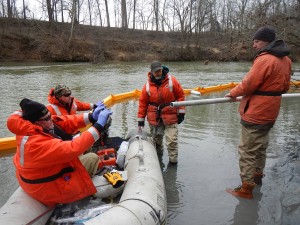People say the corporate world has no soul. Corporations don’t give a rat’s behind about their employees especially after they’re gone. And the flip side is employees are just there to get a paycheck. They do what it takes and if they’re lucky they have a job that pays the bills, while they can’t wait to get the heck outta there. Well I’m here to tell you it ain’t always so. I mean we have a great example right here in North Carolina.
There was a dedicated worker by the name of McCrory. He worked hard for the same company for 28 years. After toiling faithfully for 28 years this ambitious employee got a yearning for politics. Exhibiting the same kind of work ethic and perseverance he had exhibited for his former employer, McCrory made it to the top of the political heap in North Carolina running unsuccessfully for governor in 2008 but undaunted, capturing the post in 2012. And you know what? McCrory’s former employer was one of his biggest fans.
Remember we thought corporations were heartless. And it’s always been a kind of given that the larger the corporation was – the more disconnected they were from their employees. But this relationship scoffs at those perceptions. North Carolina governor Pat McCrory’s former employer is none other than Duke Energy, the largest utility company in the country. And did Duke turn its back on its former employee? No sirree, Bob. According to a recent AP news report Duke Energy, its political action committee, its executives and their immediate families showed their support for the former employee by donating more than $1 million to his campaigns and its affiliated groups. Now does that sound like some kind of heartless, soulless entity just after its employees’ sweat and blood?
But wait – this saga just keeps getting better. Just as McCrory was settling in as Governor of the Old North State, Duke suffered some unfortunate incidents. You know, it had been busy engulfing Progress Energy and still trying to keep tabs on its nearly $3 billion in earnings when apparently some not-so-clean coal ash was found to be seeping into waterways like the French Broad River. Nasty environmental groups interceded and filed lawsuits under the Clean Water Act.
The humble former employee, of course, would not take personal credit, but the state of North Carolina did intervene and take over the suits. Now that’s not to say the utility giant got off scot-free. No way, the state levied a $99,000 dollar fine on Duke, oh and by the way North Carolina’s Department of Environment and Natural Resources (DENR) filed enforcement actions for all of Duke’s coal ash sites (31) in the state, obviously alleviating environmental groups of the burden of having to marshal the resources to file lawsuits.
All was about to return to normal – the employer and employee were ready to get on with their daily routines when, dang nab it, another Duke coal ash pit started puking thousands of tons of polluted coal ash into the Dan River. This spill regrettably brought pesky federal investigators into the picture. Duke Energy and North Carolina’s DENR have received subpoenas. NC DENR has confirmed that nearly 20 employees will be called to testify before a grand jury this month.
One has to feel confident that science will have a prominent seat at this roundtable. After all we are talking about our environment, clean water and biological integrity and human safety and this all falls under the umbrella of North Carolina’s Department of Environment and Natural Resources headed by McCrory appointee John Skvarla who holds a B.A. in economics from Manhattan College and a J.D. from the University of North Carolina School of Law.
Skvarla recently solidified his scientific stature regarding fossil fuels when he told WRAL-TV’s Laura Leslie, “…The Russians, for instance, have always drilled oil as if it’s a renewable resource. So far, they haven’t been proven wrong. There’s a lot of different scientific opinion on that.”
Not that Duke Energy or the Governor of North Carolina or the Secretary of NC DENR would throw anyone under the bus, but I’m thinking I see tire tracks all over Tom Reeder, director of North Carolina’s Division of Water Quality.

